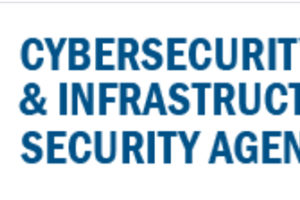Category: Organisation Types
Organisation Types for membership
NCSC CNI Hub goes live
North Korean Malicious Cyber Activity

Hurricane Zeta makes landfall on Louisiana Coast
NSA Secures 5G Through Partnerships
OSCE and UN partners train practitioners from Central Asia on effective investigations of cybercrimes and terrorist use of Internet

ENISA Threat Landscape 2020 highlights top cyber threats for January 2019-April 2020

Manila rolls out its La Niña Implementation Plan
New Report: Cities at risk – Building a resilient future for the world’s urban centres
New ITU study estimates US$ 428 billion are needed to connect the remaining 3 billion people to the Internet by 2030
The International Telecommunication Union (ITU) has published Connecting Humanity - Assessing investment needs of connecting humanity to the Internet by 2030, a comprehensive new study that estimates the investment needed to achieve universal, affordable broadband connectivity for all humanity by the end of this decade.
Connecting Humanity posits that nearly US$ 428 billion is required to connect the remaining 3 billion people aged ten years and above to broadband Internet by 2030. It is an ambitious goal and a major infrastructure investment challenge.
"Meeting the investment necessary to bring every person online by the end of this decade will require an unprecedented and concerted effort from the public and private sectors," said ITU Secretary-General Houlin Zhao. "The new Connecting Humanity study led by ITU is the much-needed roadmap that will guide decision-makers on the journey towards accessible, affordable, reliable, and safe digital technologies and services for all."
The study examines costs associated with infrastructure needs, enabling policy and regulatory frameworks, and basic digital skills and local content at both the global and regional levels, as well as how to mobilize the unprecedented levels of financing needed to extend networks to unserved communities.
Over the past several months, the COVID-19 pandemic has exposed different types of inequalities within and across countries and regions, including those related to quality of access, affordability and use of the Internet.
With so many essential services pushed online, there is a real and present danger that those without broadband Internet access could be left ever further behind. Hence assessing investment requirements to reach affordable universal connectivity is important to any country concerned with their ability to achieve the Sustainable Development Goals (SDGs).
According to ITU, over 12% of the global unconnected population live in remote, rural locations where traditional networks are not easily accessible, most of them in Africa and South Asia. This connectivity gap is exacerbated by the gender digital divide. Across the globe, more men than women use the Internet: only 48% of women as opposed to 58% of men.
Whereas in some regions bridging the connectivity gap predominantly means upgrading existing coverage and capacity sites, nearly half of the required radio access network (RAN) infrastructure investment in Sub-Saharan Africa, South Asia, and East Asia/Pacific will be greenfield, the new study says.
"While this is an ambitious aim, it is in no way an unachievable one," said Doreen Bogdan-Martin, Director of the ITU Telecommunication Development Bureau. "It is my hope that, as part of ITU's Connect 2030 Agenda efforts, this major new ITU assessment will provide clear, coherent evidence-based guidance for countries that will help accelerate efforts to reach unconnected communities, so that equality of opportunity is finally within reach of all."

